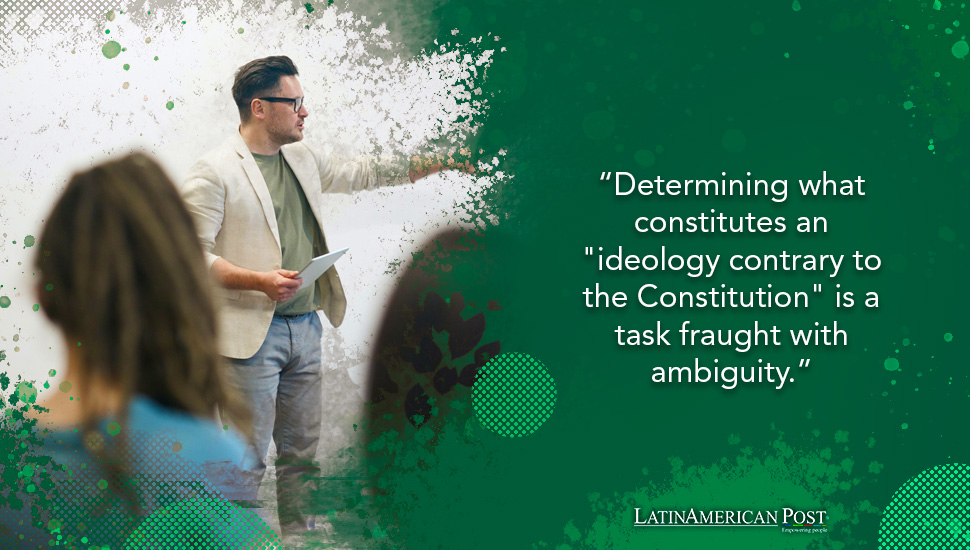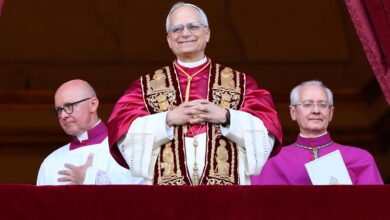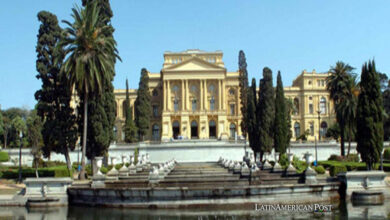Peru’s New Law on Teacher Dismissal: A Well-Intentioned Path Fraught with Ambiguities

Peru’s recent legislative initiative to dismiss teachers affiliated with ‘unconstitutional ideologies’ aims to safeguard educational integrity but risks arbitrary enforcement and undermines academic freedom due to the complex nature of constitutional interpretation.
Peru’s New Law on Educator Dismissals
Peru has embarked on a contentious path by introducing a law that mandates the immediate dismissal of educators who spread ideologies contrary to the Constitution. While the initiative, announced by Alberto Otárola, President of the Council of Ministers, appears well-intentioned, aiming to purify the educational system of harmful influences, it is fraught with potential pitfalls that could lead to arbitrary dismissals and stifle the free exchange of ideas.
At its core, the law seeks to ensure that students are under the guidance of teachers who possess technical, physical, and legal capabilities and embody moral integrity and ethical commitment. Education Minister Miriam Ponce emphasized the importance of educators as moral exemplars and peacebuilders whose daily actions inside and outside the classroom must align with ethical and civic responsibilities. However, the legislation’s noble objectives may be undermined by its inherent vagueness and the complex nature of constitutional interpretation.
Ambiguity in Constitutional Interpretation: A Potential Pitfall
Determining what constitutes an “ideology contrary to the Constitution” is a task fraught with ambiguity. Like any legal document, the Constitution is open to interpretation, with different legal scholars, politicians, and citizens often holding divergent views on its meaning in various contexts. This ambiguity leaves room for the law’s application to be influenced by subjective judgments, potentially leading to the dismissal of teachers based on arbitrary or politically motivated criteria rather than clear violations of constitutional principles.
Moreover, the requirement for educators to steer clear of any personal or collective affiliation with groups that oppose the constitutional mandate raises concerns about privacy and freedom of association. This provision could lead to a climate of fear and self-censorship among teachers, who might avoid discussing specific topics or engaging in activities that could be misconstrued as unconstitutional, thereby impoverishing the educational experience for students.
The emphasis on teachers demonstrating moral capacity and ethical commitment “at all times” further complicates the law’s implementation. While fostering a culture of peace and respect for human rights within schools is commendable, the expectation for educators to exhibit impeccable moral conduct continuously is an unrealistic standard that needs to account for human complexity and the multifaceted nature of ethical behavior.
Potential for Ideological Purging: Lessons from History
The potential for this law to be used as a tool for ideological purging must be considered. History is replete with examples where laws intended to protect national values or constitutional integrity were exploited to suppress dissenting voices and consolidate power. The subjective nature of determining constitutional fidelity could inadvertently transform educational institutions into battlegrounds for political and ideological disputes, detracting from their primary mission of fostering critical thinking, creativity, and a genuine love for learning.
Furthermore, the law’s focus on combating “violent ideologies” that have harmed Peru, while understandable, risks conflating legitimate political dissent or critical historical analysis with advocacy for violence. This conflation could penalize teachers who engage students in critical discussions about Peru’s history, including periods of conflict and governance, under the guise of preventing the spread of violent ideologies.
Execution Challenges: Expertise and Safeguards Needed
The challenge lies not only in the law’s intent but in its execution. Implementing such a broad and subjective policy requires vast specialized knowledge of constitutional law, political philosophy, and educational ethics—expertise that may be beyond the capacity of administrative bodies tasked with enforcing the law. Without clear guidelines and safeguards, there is a real risk of infringing on academic freedom and the rights of educators, potentially leading to legal challenges and international criticism.
Also read: Climate Change’s Fiery Wrath: Chile’s Wildfire Catastrophe Signals Global Alarm
While Peru’s new law on teacher dismissal is propelled by a desire to safeguard educational spaces from harmful ideologies, its broad and ambiguous language presents significant challenges. To avoid arbitrary dismissals and uphold the principles of academic freedom and free speech, the Peruvian government must provide clear, objective criteria for the law’s application.
Additionally, fostering an educational environment that encourages open dialogue, critical thinking, and respect for diverse viewpoints is essential for developing informed, engaged citizens. As Peru navigates these complex waters, the international community will be watching closely, hoping the nation can strike a balance between protecting its constitutional values and preserving the fundamental freedoms underpinning a vibrant democracy.




